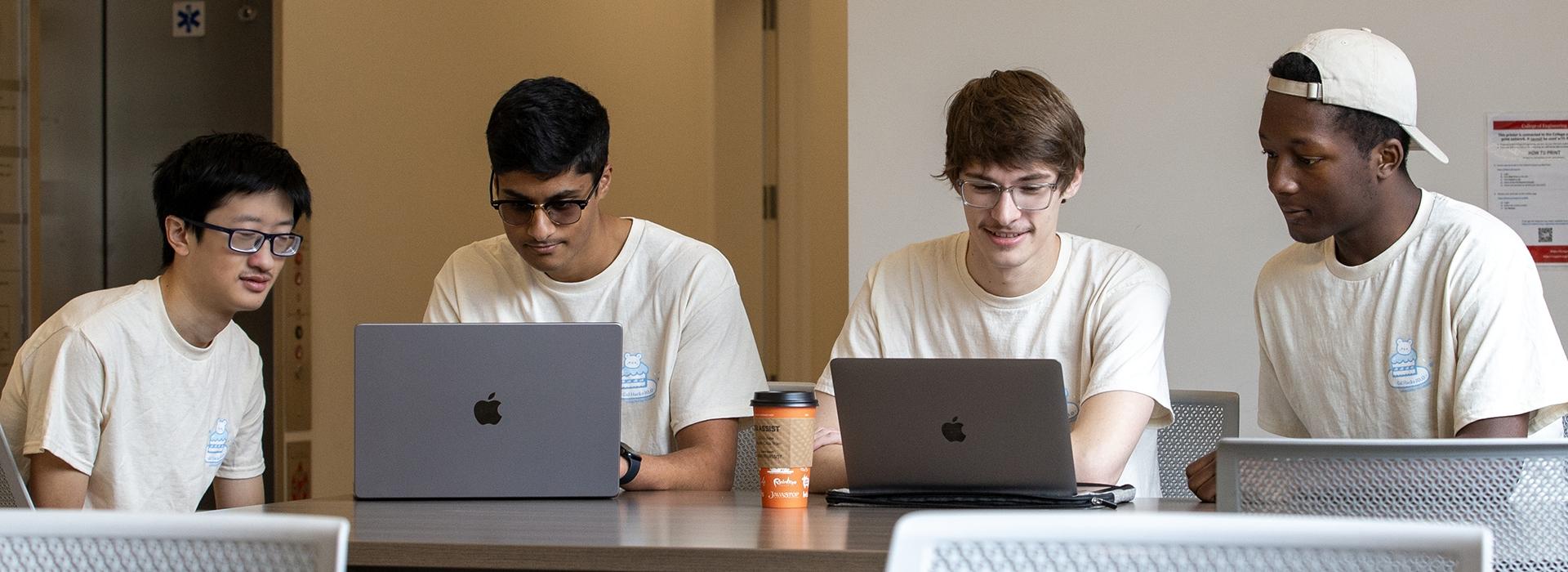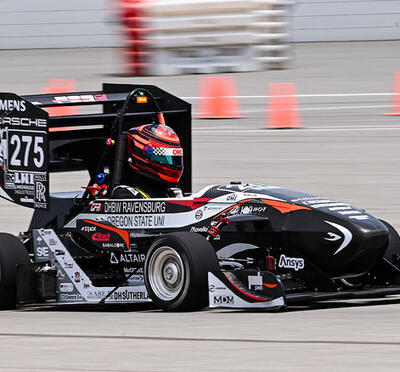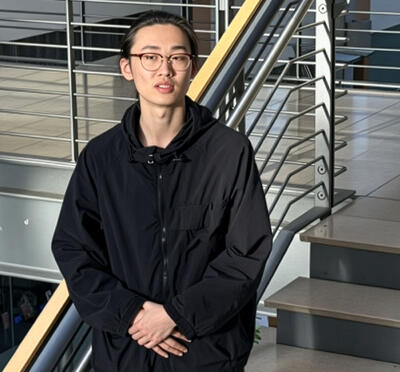A team of four Oregon State University students took first place at Cal Hacks 10.0, a technology-focused competition hosted by the University of California, Berkeley, in late October.
Undergraduate computer science students Sankalp Patil, Tom Nyuma, Derek Williams, and Jeff Huang flew to San Francisco to participate in the weekend-long contest, billed as “the world’s largest collegiate hackathon.”
Cal Hacks, like many hackathons, challenges students to develop an innovative solution to a problem of their choosing. Over many sleepless hours, the Oregon State team created Nexus, a voice-based app that aims to connect people based on common interests.
“We built the app for people who want to talk with other people who share similar experiences, and this would be a way to do that,” Patil said. “Traditionally, people really have to put themselves out there, which some people aren’t comfortable with.”
One advantage of the Nexus app, the team says, is that it requires very little effort for users to get connected and start talking.
“If you think about social media platforms, you have to reach out to other people,” Nyuma said. “With Nexus, you can simply create an account and we do that hard part of intelligently matching you up with others.”
The group made their project an “audio-only” app because they felt it would be easier for many people to talk to each other without having a camera on.
The first overall prize earned each team member an Apple iPad tablet, but all of them came away with much more, including lessons on networking, communication, teamwork, and confidence.
“It’s more so about the connections you make,” said Nyuma. “We were meeting startup founders, venture capitalists, and students from other universities.”
The Oregon State team faced stiff competition from other top universities. But as the four students spoke to sponsors, learned new technologies, and developed their project, their confidence grew.
“I learned that it’s worth taking risks, and having a good idea is really important,” Williams said. “Sometimes you have to go through a lot of ideas before you find the right one.”
Huang noted that it was important for the team to be able to communicate with the judges about their project.
“It’s important to make something great technically, but you have to be able to explain it to someone who’s never seen your product before,” he said.
Encouraged by their win, the team is working to develop Nexus further.
“We’re planning on making the app fully functional, because we just made a minimally viable product for the hackathon,” Patil said. “So, we want to fully flesh out all the ideas we had and, if all goes well, potentially deploy it.”



